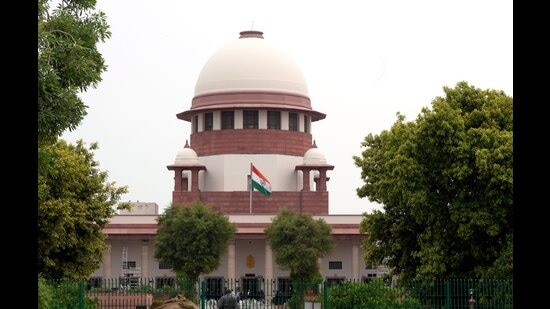Jul 26, 2024 09:20 PM IST
SC settles the debates on royalty vs taxes and the states’ autonomy on mining tax. Now, its time for prudence in exercising these powers
The 8-1 Constitution bench judgment of the Supreme Court (SC) allowing states to tax minerals over and above royalty payments could have far-reaching implications for both the Indian economy and federalism. The judgment settles the debate on two major points. One, royalty is not the same thing as tax. And two, unless the Centre amends the MMDR Act, 1957 to restrict states’ powers to levy such charges, the latter are free to do so. The first is an eminently rational position, especially vis-à-vis the question of mining. Minerals are finite resources, and their exploration often leads to loss of biodiversity and pre-existing livelihoods. It is important that these losses are adequately compensated by a payment over and above the usual tax burden. This is all the more important under an indirect tax regime such as GST, which raises more taxes at the consumption rather than the production (exploration) end of the value chain.

To be sure, it is equally important to underline the fact that no state government, irrespective of political affiliation, has a clean record in this country in terms of striking a healthy balance between livelihoods, sustainability and commercial interests related to mining. This is a problem which is present across the spectrum, from big capital owned large mining operations to local level mining mafia engaged in activities such as sand mining. The former is more and more in conflict with our biodiversity and indigenous people’s habitations and the latter is destroying India’s riverbeds, and even bridges, apart from causing a loss of revenue.
The second part of the verdict, given the consistent tension between the Centre and the states, might be made redundant if the Centre decides to amend the MMDR Act. To be sure, the change of political fortunes after the general elections might have made the legislative math in the Rajya Sabha slightly more complicated for the government.
While the SC has ruled that the Centre is within its rights to make such changes to the law, this freedom ought to be interpreted and exercised with some political caution. India’s fiscal federalism suffers from a fundamental imbalance where states’ share in spending is much more than their share in revenues. The implementation of GST, without any prejudice to its ease of business advantages, has further squeezed the tax generating ability and autonomy of the states. Unless the Centre is sensitive to this growing unease of state governments — many of them represent populations larger than that of several European countries — fault lines in Indian fiscal federalism and, eventually, democracy could only deepen going forward. It is also extremely important that the principle of federal autonomy is not applied mechanically until a point where it brings more chaos than order to the overall rules of the game. The minority judgment in this case is a clear warning towards such pitfalls.
The bench has left another extremely important question, whether its judgment will have a retrospective effect or not, for July 31. While states might stand to make significant windfall gains from such application, it will be yet another bad precedent when it comes to an already bad track record of policy, politics and the law being committed to the ease of doing business in the country. This, more than anything else, is a strong ground for the Court to decide against making the judgment retrospective.
Unlock a world of Benefits with HT! From insightful newsletters to real-time news alerts and a personalized news feed – it’s all here, just a click away! –Login Now!


